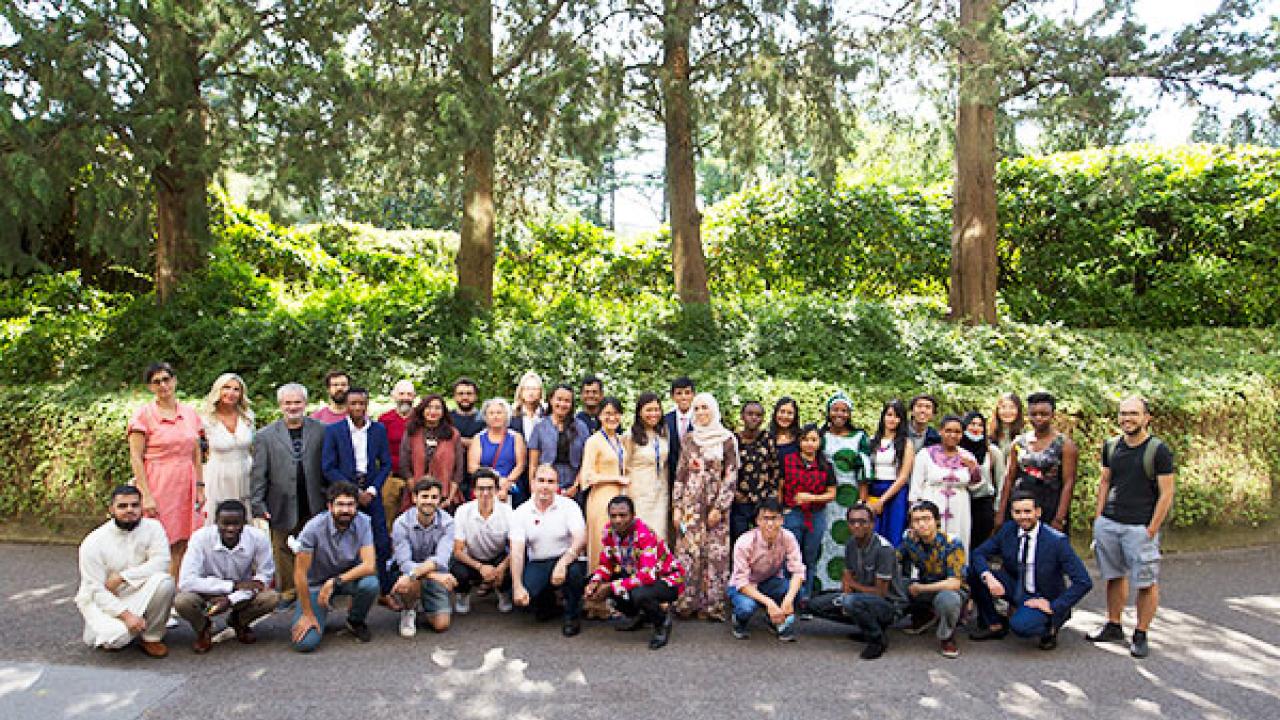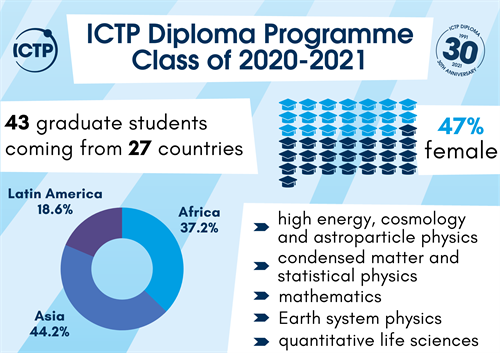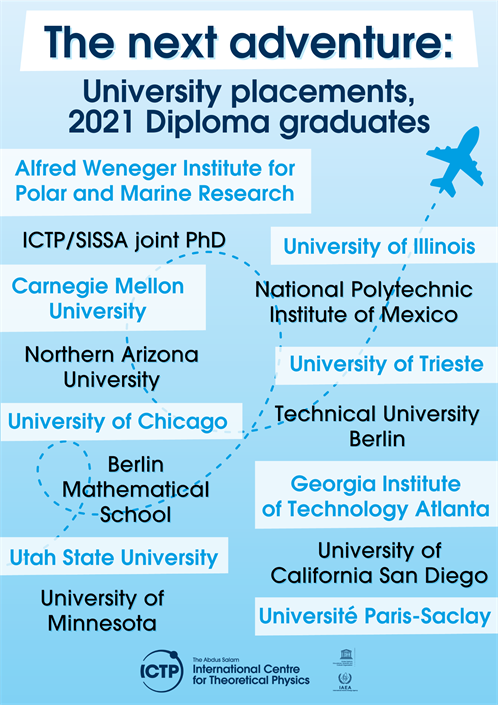
Overcoming obstacles to pursue an advanced science education is almost a fact of life for students from disadvantaged countries. ICTP's Postgraduate Diploma Programme helps these students fill the gaps in their science or mathematics education, gaps that could be potential obstacles to pursuing further studies at the masters or doctoral levels.
Forty-three such students have completed the 2020-2021 Postgraduate Diploma Programme and received diplomas at a ceremony on 25 August certifying that they had completed the intense, one-year course of study. Many have been accepted to masters and PhD studies at universities around the world, thanks to the knowledge and experience they have gained at ICTP.
This year's graduates come from 27 different countries; 47% of the students are women. Of the 43 graduates, seven were singled out as the top students of their respective programmes:
- Erick Arguello (Ecuador) studied high energy physics and will pursue a PhD at Carnegie Mellon University
- Joshua Casapao (Philippines) studied condensed matter physic
- Ajay Gautam (Nepal) studied mathematics and has been admitted to the Joint ICTP/SISSA PhD programme
- Arpon Paul (Bangladesh) also studied high-energy physics and has been accepted to a PhD programme at the University of Minnesota
- Rolando Ramirez Camasca (Peru) also studied condensed matter physics and has been accepted to PhD studies at the University of California-San Diego
- Kyrell Verano (Philippines) studied quantitative life sciences and will pursue a PhD at the University of Trieste
- Michie Vianca de Vera (Philippines) studied earth system physics and will pursue a master's degree at the University of Illinois
 The conclusion of the Diploma academic year prompted the graduates to reflect on the unique experience they had undergone at ICTP.
The conclusion of the Diploma academic year prompted the graduates to reflect on the unique experience they had undergone at ICTP.
"There is a very good environment here at ICTP for science," said Younes Benyahia, a Diploma graduate from Algeria who studied mathematics. "Everyone is discussing math and physics. The professors are so friendly, you have coffee with them while you casually talk about math. It's surprisingly diverse, a lot of fields of mathematics are covered here, even if there are just a few faculty members. Whatever you like, you can find it here."
New Diploma graduate Amelia Sanchez Perez, from Cuba, appreciated the diversity of ICTP's environment. "The Diploma programme is a programme of excellence, of course, but for me the most important is that the Diploma programme is also a multicultural space," she explained, adding, "Here I met wonderful people from other countries, people so different from me, and that was a great experience. I think the Diploma not only prepares you to be a good scientists but also prepares you for life in general." Sanchez Perez studied earth system physics.
 "It's been really intense but also very rewarding," said Ronaldo Ramirez Camasca, a graduate from Peru who studied condensed matter physics. "I think the course work here is comparable to the top institutions in the world. Research-wise, professors here do a lot of interesting, cutting edge research at the boundaries of physics. Because it is really a diverse programme, it has broadened my perspective on different cultures."
"It's been really intense but also very rewarding," said Ronaldo Ramirez Camasca, a graduate from Peru who studied condensed matter physics. "I think the course work here is comparable to the top institutions in the world. Research-wise, professors here do a lot of interesting, cutting edge research at the boundaries of physics. Because it is really a diverse programme, it has broadened my perspective on different cultures."
Kyrell Verano expressed her appreciation for the broad range of topics covered in the Quantitative Life Sciences (QLS) courses she took at ICTP. "The Diploma Programme has met my expectations, it is a very good preparation for PhD studies. In QLS, they offer a lot of courses, from ecology to biophysics, to neuroscience and machine learning. It opens your eyes to a lot of opportunities, so you can choose better what you would like to do."
The Diploma graduation ceremony was held during the Diploma 30th Anniversary celebration, a three-day event aiming to reconnect Diploma alumni and create regional networks. More details can be found at the event website.













